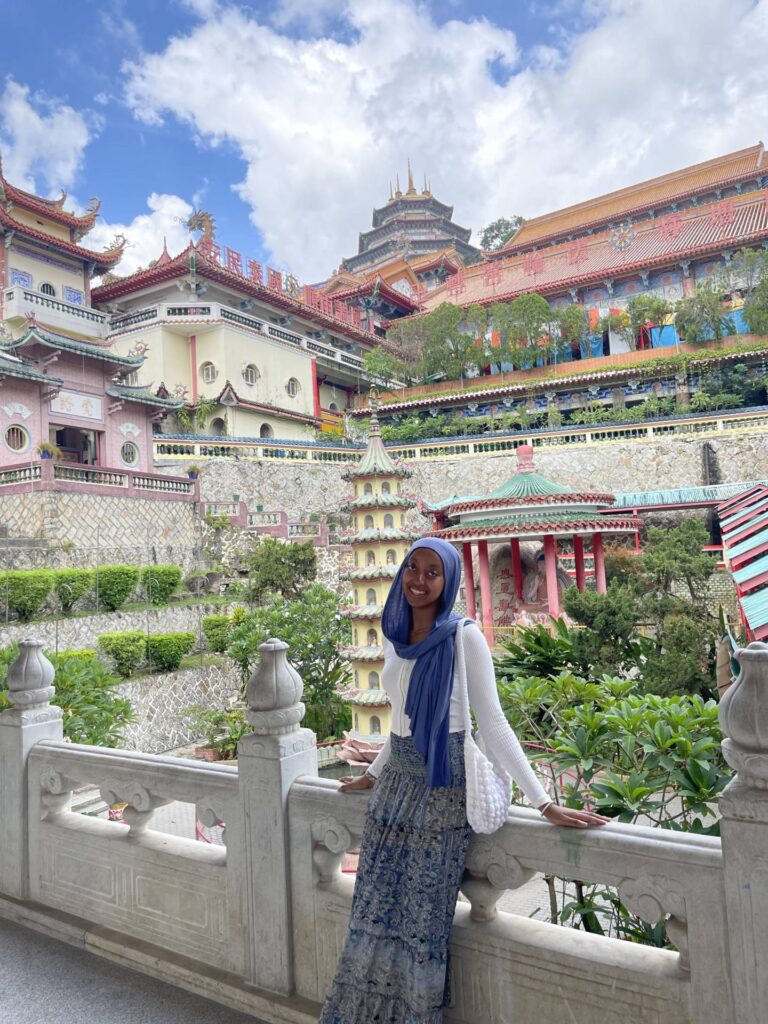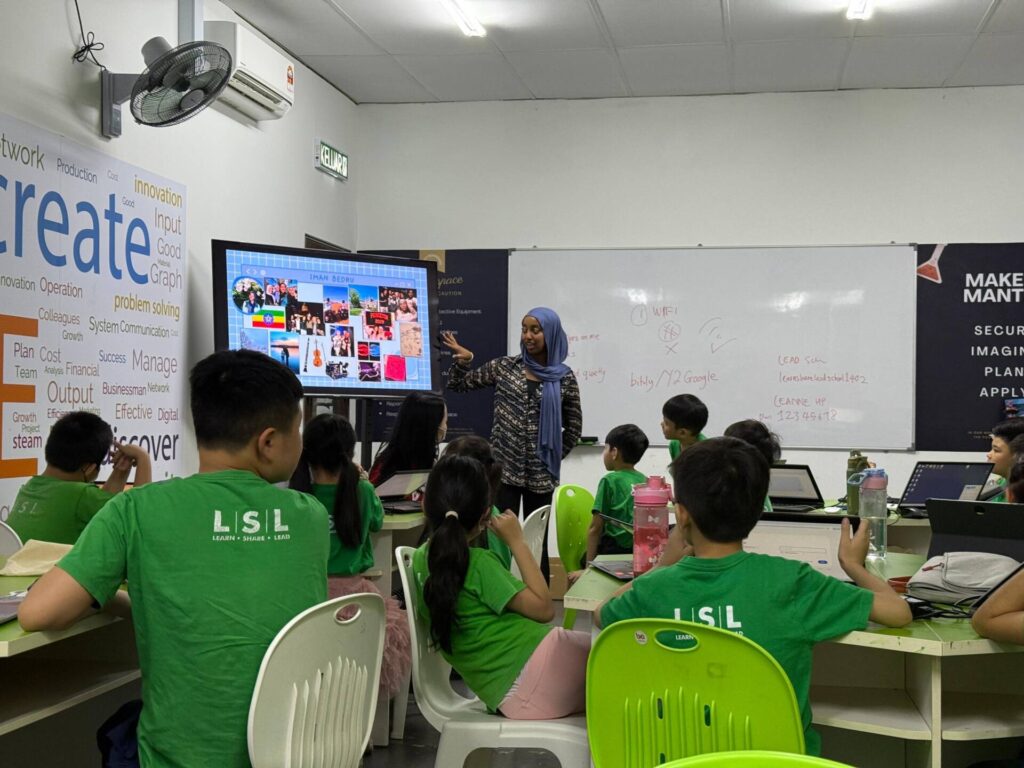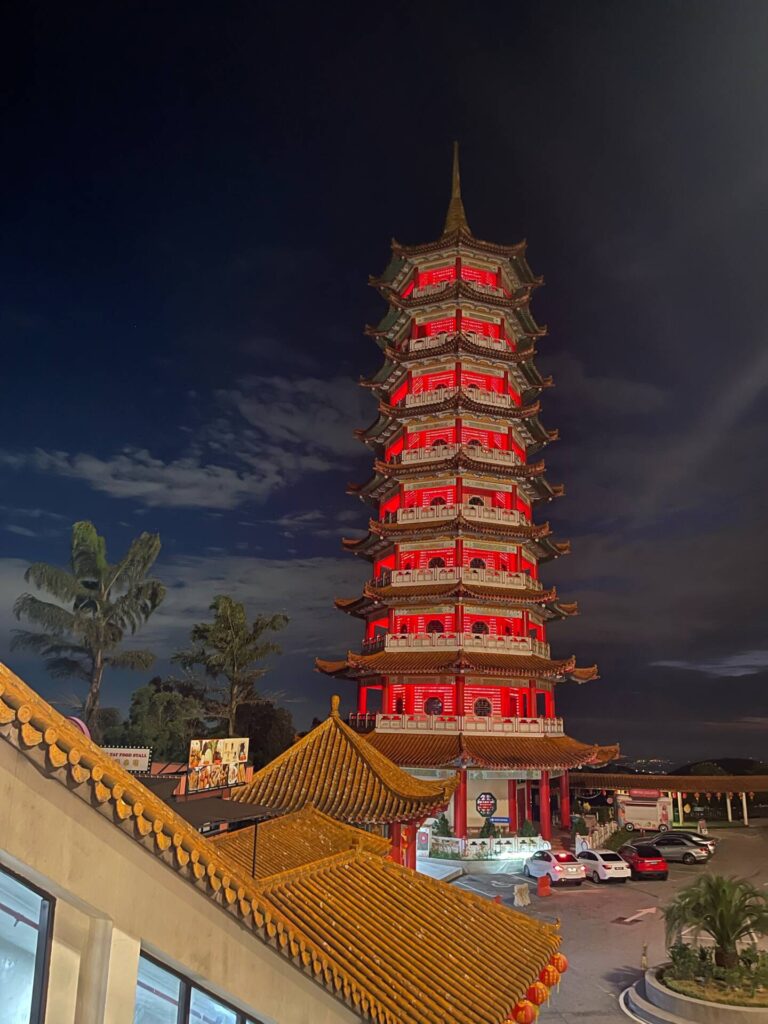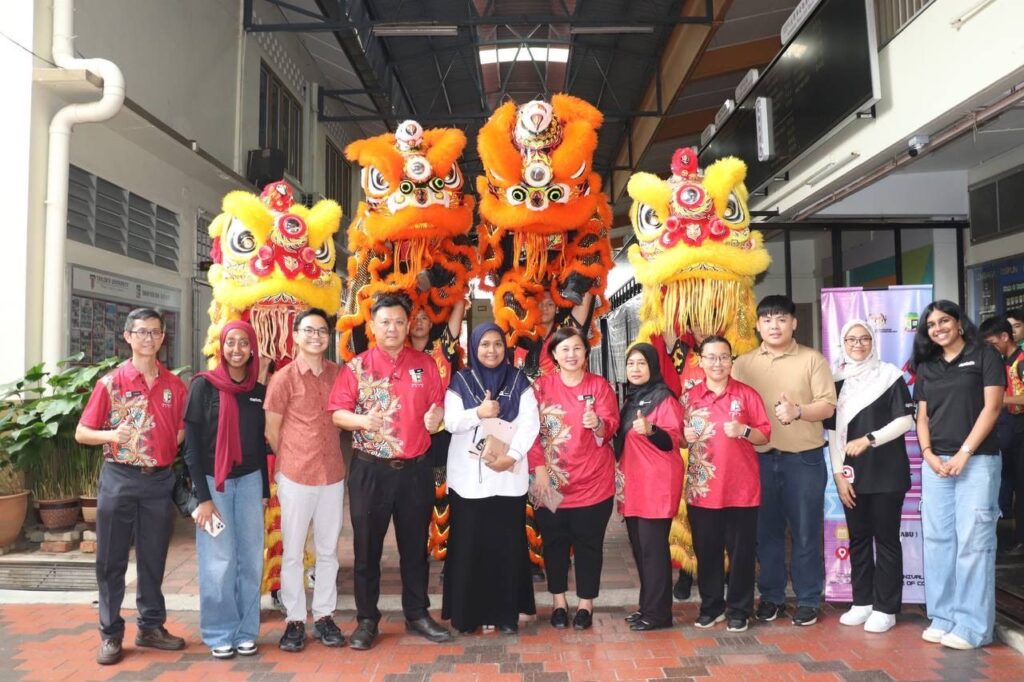This summer, Iman Bedru ’28 traveled from Woodbury, Minnesota, to Kuala Lumpur, Malaysia, for an internship with Chumbaka, an organization dedicated to empowering youth through technology and education. As a rising sophomore in Electrical and Computer Engineering, Iman went to Malaysia through Princeton’s International Internship Program (IIP), drawn by the opportunity to connect her technical background with her passion for education and community engagement.
When browsing through IIP’s opportunities, Chumbaka stood out immediately. Its mission, which is to equip students and teachers with the tools to explore and innovate through STEM, aligned perfectly with Iman’s vision of using engineering knowledge to create meaningful social impact. The fact that the internship was based in Malaysia only added to the appeal. A country rich in cultural and ethnic diversity, Malaysia promised not just professional growth, but also immersion in a vibrant new environment.

First Impressions
Landing in Kuala Lumpur, Iman was struck by the city’s intensity. From the bustling food stalls to the endless traffic, KL was alive in a way that felt both overwhelming and exciting. The heat was relentless, but eventually became part of daily life. At first, she wondered how she would find her footing in such a sprawling city. But within days, a rhythm emerged—commutes, workdays, and the small rituals that slowly carved out a sense of home.
Lessons from Chumbaka
Working with Chumbaka offered Iman lessons far beyond technical skill. Much of the research and development work during the project centered on an educational app that needed to be translated into Malay. Iman carefully reviewed the English text, identifying sections that required adjustments to ensure clarity and cultural relevance for students. She also helped test the app’s functionality, noting areas where the interface or instructions could be improved. Through this R&D process, she came to appreciate the power of language, recognizing how carefully phrased instructions could shape the way students engaged with material. She also learned the delicate balance between providing enough guidance to keep students on track while leaving space for independent thinking and creative problem-solving.
One of the biggest revelations was the central role of teachers. “We often focus on students and assume teachers will catch up,” Iman reflected. “But real, lasting change starts with teachers.” At Chumbaka, she saw how equipping teachers with knowledge and tools could ripple outward, inspiring not just individuals but entire communities. Concepts like “school in the cloud” reinforced this insight: every student has the inherent ability to succeed, but they need a supportive system and accessible resources to unlock that potential.
Her hands-on work with Arduino, an open-source electronics platform with hardware boards and software, was used to create interactive digital projects. Arduino simplifies electronics by allowing users to write simple programs (called “sketches”) in an easy-to-use environment to read sensors, control motors, and light up LEDs. Working on these projects further deepened her appreciation for accessible STEM learning. She saw how simple, low-cost tools could spark creativity, innovation, and curiosity among students, democratizing opportunities that are often limited by geography or socioeconomic barriers.
Beyond R&D, her time with Systems and Operations revealed how many moving parts sustain an organization. Whether it was planning events, creating branding materials, or supporting logistics, Iman discovered the importance of communication, foresight, and attention to detail. Small tasks often carried unexpected weight, shaping how smoothly the bigger picture unfolded.

Beyond Work
The internship was not just about work. On weekends and evenings, Iman dove into Malaysia’s culture. She wandered through local markets filled with the aromas of satay and nasi lemak, spent afternoons tucked into coffee shops, and ventured beyond KL to Penang, Malacca, and the misty Genting Highlands. Each trip revealed a different side of Malaysia, such as its food, art, history, and landscapes, leaving her with a deeper appreciation for the country’s diversity.

Looking Forward
By the end of the summer, Iman felt she had accomplished her goals—and discovered new ones. She gained confidence working across cultures and stepped outside her comfort zone in meaningful ways. Most importantly, the experience affirmed her desire to integrate education into her future career. Whether through engineering, teaching, or community-based initiatives, she wants to use her skills to make STEM more accessible and to leave a lasting impact on the communities she engages with.

In reflecting on her summer, Iman put it best: “Change truly begins with teachers. But it’s also about remembering that technology is not just about machines—it’s about people, and how we empower them.”
— Aishah Shahid, Engineering Correspondent

